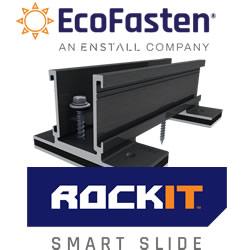Army Corps awards $7.7 million for Dugway Proving Ground solar array
The project includes installation of solar panels, inverters, transmission lines, transformers, advanced metering, controls and communications, and security measures.
SACRAMENTO, Calif. - The U.S. Army Corps of Engineers Sacramento District awarded a $7,746,291 contract August 7 to TriEco-Tetra Tech Sustainable Resources Joint Venture of San Diego for installation of a two-megawatt solar photovoltaic array at Dugway Proving Ground, located in Tooele County, Utah.
The project includes installation of solar panels, inverters, transmission lines, transformers, advanced metering, controls and communications, and security measures.
When completed in fall 2015, the array will generate approximately 3,990 megawatt-hours of power annually - enough to power 540 homes.
"Rocky Mountain Power, Tooele County's main utility company, would need a major overhaul to supply the growing energy demands of Dugway Proving Ground," said Dave Simpson, the Corps' manager for the project. "This project is the first step to address impending electrical shortages and is a central element of the installation's energy security strategy."
TriEco-Tetra Tech is a U.S. Small Business Administration-designated small business. The federal government sets aside certain contract bid opportunities exclusively for small businesses.
The U.S. Army Corps of Engineers Sacramento District provides planning, engineering, project management, environmental restoration and construction services to military and civilian customers in parts of eight western states, including California, Nevada, Utah, Arizona, Colorado, Idaho, Oregon and Wyoming.
Featured Product

Introducing RockIt Smart Slide
Introducing RockIt Smart Slide - the ultimate solution for fast and easy installation of the rail-less RockIt racking system on composition shingle roofs. Smart Slide conforms to UL 441 and TAS 100 (A)-95 for wind and wind-driven rain, providing a super-strong watertight seal that is achieved through compression, in most cases without the need for additional sealant. The waterproofing sealant is embedded deep into the granules of the shingle, thanks to the integrated flexible foam layer that provides cushioning. This ensures a secure fit that conforms to any architectural-style shingle. With UltraGrip Technology™, you can rely on a secure installation, as it absorbs the movement created by thermal expansion and contraction. The pre-installed sealing pads are compatible with all composition shingle roofs, making it the ideal choice, even in ambient temperatures as low as 5 degrees.
